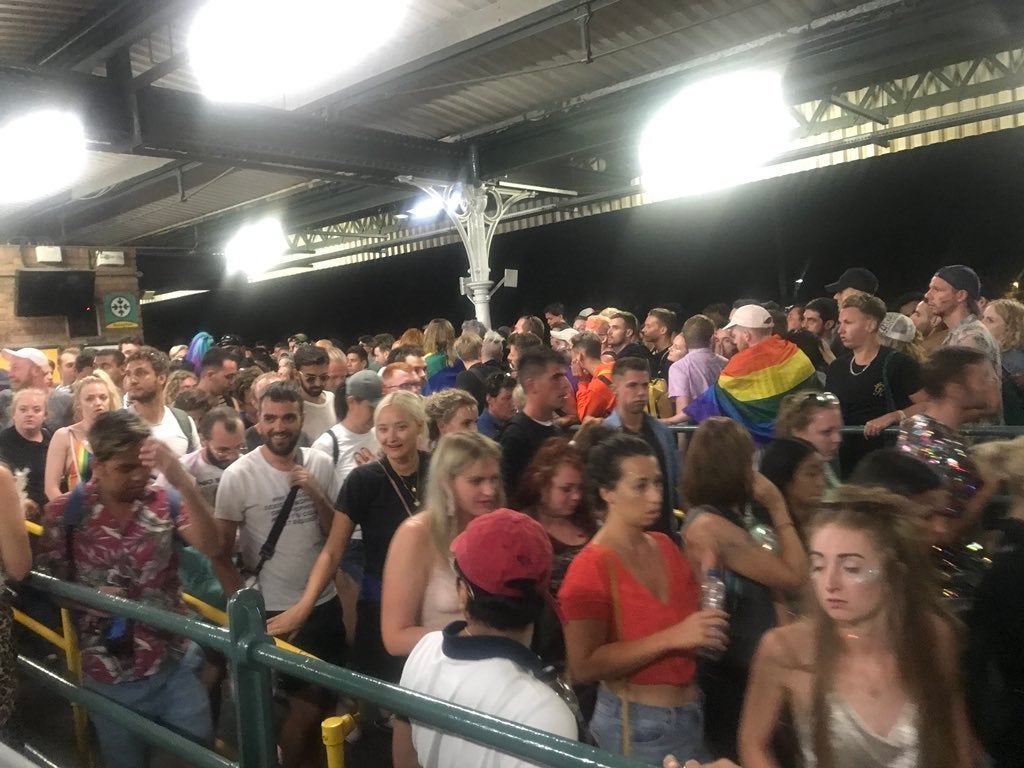UK heatwave increasing pressure on police as public 'react very strangely' to hot weather, senior officer warns
Police believe more offences are committed as higher temperatures cause more people to drink and spend time in public spaces

The heatwave sweeping Britain is increasing pressure on police as the public “react very strangely” to hot weather, a senior officer has warned.
John Apter, chair of the Police Federation, told The Independent the weather was adding to “unprecedented demand” on forces following huge operations connected to Donald Trump’s visit and the royal wedding.
“The public react very strangely when the weather gets hot,” he said, adding higher temperatures cause more people to be out on the streets drinking, partying and potentially committing public order offences.
“It’s nice to have good weather but the increase in demand adds to an already overstretched police service,” said Mr Apter.
The senior officer said coastal parts of Britain and beauty spots are particularly vulnerable to changes in temperature, which can prompt unpredictable influxes of visitors.
“You have areas like the New Forest where the policing model is the same in the winter as it is in the summer, but its population quadruples in size – you have places like this all over the country,” he said.
The sunshine is believed to among the factors that drew thousands more people than expected to Brighton Pride over the weekend, causing a crush during a Britney Spears concert before the city’s railway station was closed to prevent overcrowding.

As well as responding to crimes and public order incidents, police are also being called to medical emergencies linked to the heat, and to give water and other essentials to people stranded in traffic jams.
Mr Apter said officers are put under increased physical strain during high temperatures because of gruelling patrols under the weight of stab vests and other protective equipment.
“Policing is in crisis and it’s not just for the summer months, it’s just continuing now,” he added.
A heatwave over the early May bank holiday saw three people killed in shootings and stabbings amid a wider trend of rising violence.
The latest street murder was in Kingston, south-west London, in the early hours of Sunday morning.
Investigators said 22-year-old Malik Chattun was stabbed following “an altercation with a number of people”.
Police reported a record number of 999 calls last month, as senior officers appealed for football fans not to engage in disorder and vandalism during the World Cup.
West Midlands Police said emergency calls to its operations room were up 40 per cent on average on 7 July – the day England beat Sweden in a quarter final in Russia – blaming “a combination of the World Cup, summer heatwave and excess alcohol” for the surge.
North Yorkshire Police also noted incidents increased on hot weekends when people were “outside, drinking in the sunshine”, and Metropolitan Police data suggest a link between temperatures and violence.
Between April 2010 and June 2018 violent crime was, on average, 14 per cent higher when the temperature was above 20C than when it was below 10C, according to analysis by BBC Reality Check, and harassment and weapons possession offences were each 16 per cent higher.
Some of the largest riots seen in British history, most recently in August 2011, have coincided with warm weather, and a 1992 study of crime in England and Wales “yielded strong evidence that temperature has a positive effect on most types of property [crime] and violent crime”.
“The main explanation advanced is that in England and Wales higher temperatures cause people to spend more time outside the home,” concluded the research, published in the British Journal of Criminology.
“Time spent outside the home, in line with routine activity explanations for crime, has been shown to increase the risk of criminal victimisation for most types of crime.”
Numerous international studies have drawn similar conclusions, including research on violent crime in Mexico and the American cities of Cleveland, Minneapolis and Dallas.
Analysis of crime committed in Philadelphia between 2006 and 2015 found “strong associations” between rising temperatures and violent and disorderly conduct, particularly in colder months.
The level of violent crime recorded by police has been rising in England and Wales since 2014, according to the Office for National Statistics, which revealed knife offences were at their highest recorded level last month.
The government has cited factors including changes in the drugs market and social media disputes for driving stabbings.
Critics have pointed to the potential impact of the loss of 20,000 police officers since 2010, leaving the number at a record low, as well as to budget cuts to policing and youth services.
